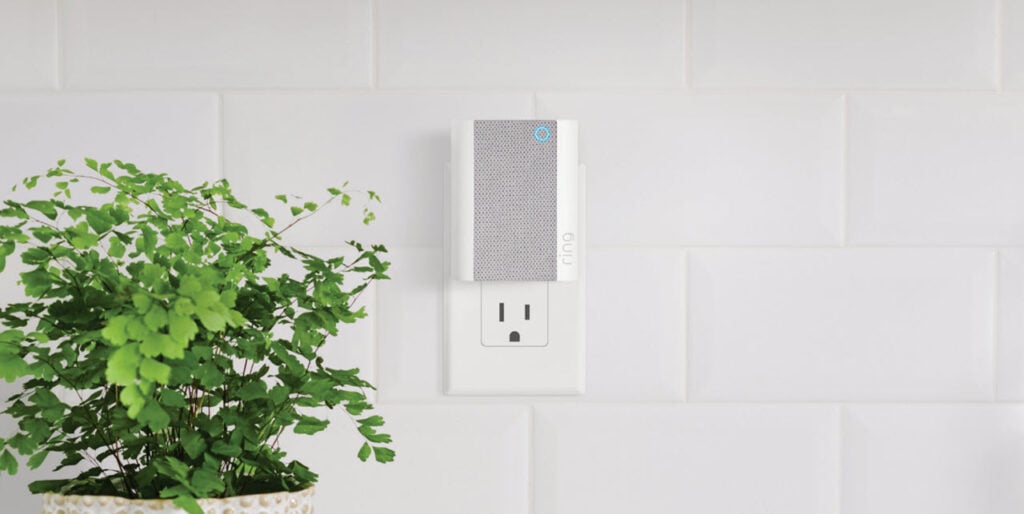Smart home devices are quickly becoming the norm these days as these devices get more compact, reliable and capable. WiFi doorbells fall into the same category and are one of the most popular smart home devices on sale.
In this article, we’re comparing the Ring Chime to the Ring Chome Pro and pointing out the key differences between the two so you know which one’s the better choice for you.
Also read: SODIMM vs DIMM: Key differences
Chime vs Chime Pro
When you’re looking at the two smart doorbells on paper they might seem quite similar and for good reason. The Chime Pro only has a couple of features that the regular Chime doesn’t get. Depending on how big your house is and your specific use case, you may or may not require these additional features.
At their basic level of functionality, both doorbells function as a chime box to hear notifications from your Ring cameras and doorbells. You get real-time notifications on the Chime or Chime Pro every time your connected cameras and doorbells detect motion or when someone rings your smart doorbells.

Both devices are relatively easy to connect and set up as well. All you have to do is plug them into a standard power outlet and connect them to your WiFi network. From there on, you get features like different chime tones, volume adjustment and a temporary do not disturb mode on both devices.
However, that’s where the similarities end. The Chime Pro has the following four features the Chime doesn’t.
WiFi repeater
The Chime Pro can also pull double duty as a WiFi repeater or extender in case you have a bigger house and your router isn’t enough to cover the entire place. With a WiFi repeater in place, you can set the Chime Pro in an area where you don’t get good WiFi signals and the device will amplify signals received from the router for a faster and more stable connection.

5GHz WiFi
Another WiFi-related feature that the Chime Pro gets is support for the 5GHz band on WiFi. The regular Chime is only able to connect to a 2.4GHz network while the Chime Pro can connect to both 2.4GHz and 5GHz networks.
The 5GHz band works better in terms of bandwidth and speed but doesn’t have as good a range as 2.4GHz so you might want to consider the placement of your Chime before deciding whether you want to go with the regular or the Pro version.
Alert amplification
Another useful feature that’s exclusive to the Chime Pro is alert amplification. The regular Chime isn’t as loud when it comes to reporting events on your smart doorbell meaning if you’re rather far away, you can miss any alerts it puts out.
The Chime Pro however can amplify alerts and is especially useful if you have a larger house where you may not be able to listen to the regular Chime’s alerts.
Night light
The Chime Pro does have a built-in night light that keeps the area surrounding the device lit and night with a soft, dim glow. This is especially useful if you have the device plugged into an outlet that’s rather close to the ground allowing better visibility in tight spaces at night.

Here’s a list of differences between the Chime and Chime Pro that’ll help you spot the difference at a glance.
| Features | Ring Chime | Ring Chime Pro |
|---|---|---|
| WiFi Connectivity | Supports 2.4GHz | Supports 2.4GHz and 5GHz |
| WiFi Extension | No | Yes |
| Supported Devices | All Ring devices | All Ring devices |
| Alert Amplification | No | Yes |
| LED Indicator | Yes | Yes |
| Night Light | No | Yes |
| Custom Chimes | Yes | Yes |
| Warranty | 1 Year | 1 Year |
Also read: How to delete BeReal posts?
Which one should you buy?
There’s a price difference between the two, $25 to be exact. The regular Chime comes in at $34.99 and the Cime Pro can be found for $59.99, That said, you’ll often find the two on sale meaning you can probably pick them up below MRP.
Depending on your use case, you may or may not need the Chime Pro’s additional WiFi and lighting features. If you have a relatively bigger house and can actually use the Chime Pro’s WiFi extension capabilities, it’s a no-brainer purchase. However, for smaller houses that are covered by just one router and are relatively unobstructed, the regular Chime will do just fine.
Also read: Why does the ESPN app say ‘user not authenticated’?






